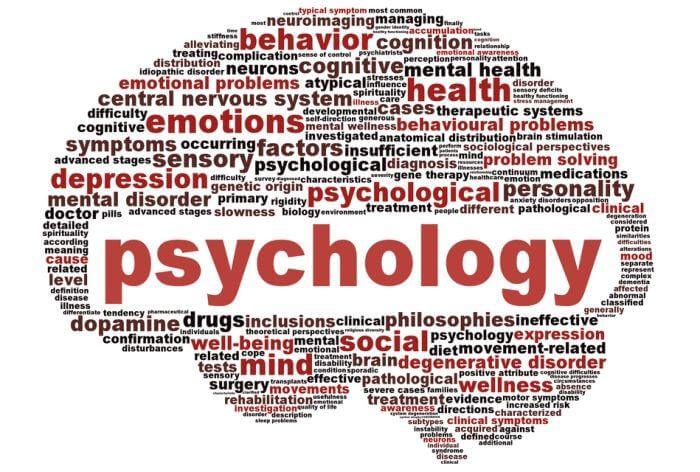Psychology and its Methods & Procedures
Psychology ko real world me use karne ke liye hum kuch methods aapko batane wale hain, jisse aap apne aap ko jaan sakte hain.
The Fascinating World of Psychology and its Methods & Procedures, and Real-Life Impact
Psychology is everywhere. It’s in the way we think, feel, and behave. It shapes our relationships, our careers, and even our daily decisions. Whether you’re navigating a tough conversation, trying to understand a loved one, or simply wondering why people act the way they do, psychology holds the answers.
But how do psychologists uncover these insights? The field relies on a variety of methods and procedures to explore the complexities of human behavior. In this post, we’ll dive deep into what psychology is, why it matters, and the scientific methods used to understand the human mind.
What is Psychology?

Psychology is the scientific study of the mind and behavior. It seeks to understand everything from basic brain functions to complex social interactions.
At its core, psychology asks questions like:
- Why do people behave the way they do?
- How do emotions influence decision-making?
- What drives motivation and habits?
- How can we improve mental health and well-being?
Psychology isn’t just about mental health—it also plays a role in business, education, sports, law enforcement, and even marketing. By understanding human behavior, we can create better workplaces, stronger relationships, and healthier lives.
The Importance of Psychological Research
Understanding human behavior isn’t just about making observations—it requires scientific research and rigorous methods. Psychological research helps:
✔️ Develop effective therapies for mental health disorders
✔️ Improve education and learning techniques
✔️ Enhance workplace productivity and leadership
✔️ Guide law enforcement in criminal investigations
✔️ Shape policies to improve societal well-being
How Do Psychologists Study Behavior? Methods & Procedures
Psychologists use a mix of scientific methods to study the mind. These methods provide valuable insights into how humans think, feel, and act.
1️⃣ Introspection Method: Looking Inward
The introspection method involves individuals examining and reporting their own thoughts, emotions, and mental processes. This technique, pioneered by Wilhelm Wundt, was one of the earliest psychological methods used to study consciousness.
✔️ Why it matters: Introspection helps understand subjective experiences and self-awareness.
2️⃣ Observational Method: Watching the World
This method involves observing behavior in its natural setting without interference. Psychologists may watch how children interact on a playground, how employees behave in a work environment, or how people react in stressful situations.
✔️ Why it matters: Observations help capture real-life behavior that experiments may miss.
3️⃣ Experimental Method: The Gold Standard
The experimental method is one of the most powerful tools in psychology. Researchers manipulate variables to see how they affect behavior.
For example, a psychologist might test how sleep deprivation impacts memory by comparing two groups—one well-rested and one sleep-deprived. By keeping all other factors the same, they can isolate the effects of sleep on memory performance.
✔️ Why it matters: Experiments allow psychologists to determine cause-and-effect relationships.
4️⃣ Clinical/Case Study Method: Deep Dives into the Mind
A case study is an in-depth analysis of a single person or small group. This method is often used for rare conditions or unusual psychological phenomena.
For example, famous case studies include Phineas Gage, a railroad worker who survived a brain injury but experienced dramatic personality changes, and Henry Molaison (H.M.), whose memory loss transformed our understanding of the brain.
✔️ Why it matters: Case studies offer rich details and insights into complex conditions.
5️⃣ Survey Method: The Power of Self-Report
Psychologists use surveys to gather information about attitudes, beliefs, and behaviors. This method allows researchers to collect data from large groups quickly and efficiently.
✔️ Why it matters: Surveys help uncover trends in mental health, happiness, and social attitudes.
6️⃣ Developmental/Genetic Method: Understanding Growth and Heredity
The developmental/genetic method examines how psychological traits and behaviors evolve over time due to both biological and environmental factors. This method is used in studies of childhood development, aging, and hereditary influences on personality and intelligence.
✔️ Why it matters: This method helps explain how genetics and environment shape human development.
Psychology in Everyday Life
Psychology isn’t just for researchers—it’s something we all use daily. Here’s how psychological methods impact real life:
🧠 In Mental Health – Therapists use research-backed methods to treat anxiety, depression, and trauma. Cognitive Behavioral Therapy (CBT), for instance, is a science-based approach to changing negative thought patterns.
🏆 In Sports & Performance – Athletes use psychological techniques like visualization and goal-setting to enhance performance.
📚 In Education – Teachers apply psychological insights to improve learning, from memory techniques to motivational strategies.
💼 In the Workplace – Understanding psychological principles helps companies build better teams, improve leadership, and boost employee well-being.
🛒 In Marketing – Businesses use psychology to influence purchasing behavior, design persuasive ads, and create engaging customer experiences.
The Future of Psychology
Psychology is constantly evolving, with new research shaping our understanding of the mind. Emerging areas include:
🌍 Positive Psychology – A growing focus on happiness, resilience, and well-being.
🤖 AI & Psychology – The role of artificial intelligence in understanding human behavior.
🧠 Neuroscience Advances – Brain imaging technologies unlocking new insights into mental health.
📱 Digital Mental Health – The rise of apps and online therapy for mental well-being.
Final Thoughts: Why Psychology Matters to Everyone
Psychology is more than just an academic field—it’s a lifelong tool for understanding ourselves and others. By applying psychological insights, we can build stronger relationships, make better decisions, and improve our mental well-being.
Next time you wonder why people act the way they do, remember that psychology holds the key. Whether you’re a student, a professional, or just curious about human behavior, understanding psychology can help you navigate life with greater clarity and empathy.
🔍 What psychological principle has impacted your life the most? Share your thoughts in the comments!







